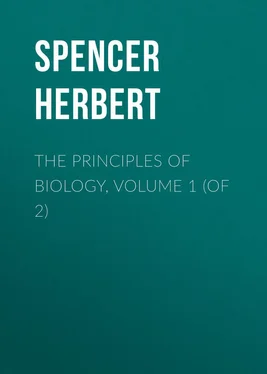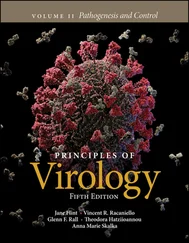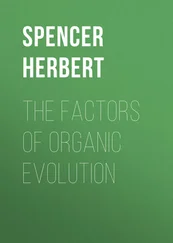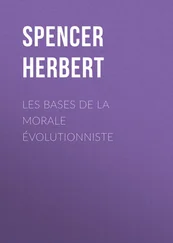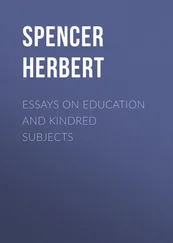Herbert Spencer - The Principles of Biology, Volume 1 (of 2)
Здесь есть возможность читать онлайн «Herbert Spencer - The Principles of Biology, Volume 1 (of 2)» — ознакомительный отрывок электронной книги совершенно бесплатно, а после прочтения отрывка купить полную версию. В некоторых случаях можно слушать аудио, скачать через торрент в формате fb2 и присутствует краткое содержание. Жанр: Философия, foreign_antique, foreign_prose, на английском языке. Описание произведения, (предисловие) а так же отзывы посетителей доступны на портале библиотеки ЛибКат.
- Название:The Principles of Biology, Volume 1 (of 2)
- Автор:
- Жанр:
- Год:неизвестен
- ISBN:нет данных
- Рейтинг книги:3 / 5. Голосов: 1
-
Избранное:Добавить в избранное
- Отзывы:
-
Ваша оценка:
- 60
- 1
- 2
- 3
- 4
- 5
The Principles of Biology, Volume 1 (of 2): краткое содержание, описание и аннотация
Предлагаем к чтению аннотацию, описание, краткое содержание или предисловие (зависит от того, что написал сам автор книги «The Principles of Biology, Volume 1 (of 2)»). Если вы не нашли необходимую информацию о книге — напишите в комментариях, мы постараемся отыскать её.
The Principles of Biology, Volume 1 (of 2) — читать онлайн ознакомительный отрывок
Ниже представлен текст книги, разбитый по страницам. Система сохранения места последней прочитанной страницы, позволяет с удобством читать онлайн бесплатно книгу «The Principles of Biology, Volume 1 (of 2)», без необходимости каждый раз заново искать на чём Вы остановились. Поставьте закладку, и сможете в любой момент перейти на страницу, на которой закончили чтение.
Интервал:
Закладка:
1
Gross misrepresentations of this statement, which have been from time to time made, oblige me, much against my will, to add here an explanation of it. The last of these perversions, uttered in a lecture delivered at Belfast by the Rev. Professor Watts, D.D., is reported in the Belfast Witness of December 18, 1874; just while a third impression of this work is being printed from the plates. The report commences as follows: – "Dr. Watts, after showing that on his own confession Spencer was indebted for his facts to Huxley and Hooker, who," &c., &c.
Wishing in this, as in other cases, to acknowledge indebtedness when conscious of it, I introduced the words referred to, in recognition of the fact that I had repeatedly questioned the distinguished specialists named, on matters beyond my knowledge, which were not dealt with in the books at my command. Forgetting the habits of antagonists, and especially theological antagonists, it never occurred to me that my expression of thanks to my friends for "information where my own was deficient," would be turned into the sweeping statement that I was indebted to them for my facts.
Had Professor Watts looked at the preface to the second volume (the two having been published separately, as the prefaces imply), he would have seen a second expression of my indebtedness "for their valuable criticisms, and for the trouble they have taken in checking the numerous statements of fact on which the arguments proceed" – no further indebtedness being named. A moment's comparison of the two volumes in respect of their accumulations of facts, would have shown him what kind of warrant there was for his interpretation.
Doubtless the Rev. Professor was prompted to make this assertion by the desire to discredit the work he was attacking; and having so good an end in view, thought it needless to be particular about the means. In the art of dealing with the language of opponents, Dr. Watts might give lessons to Monsignor Capel and Archbishop Manning.
December 28th, 1874.
2
In this passage as originally written (in 1862) they were described as incondensible; since, though reduced to the density of liquids, they had not been liquefied.
3
Here and hereafter the word "atom" signifies a unit of something classed as an element, because thus far undecomposed by us. The word must not be supposed to mean that which its derivation implies. In all probability it is not a simple unit but a compound one.
4
The name hydro-carbons was here used when these pages were written, thirty-four years ago. It was the name then current. In this case, as in multitudinous other cases, the substitution of newer words and phrases for older ones, is somewhat misleading. Putting the thoughts of 1862 in the language of 1897 gives an illusive impression of recency.
5
It will perhaps seem strange to class oxygen as a crystalloid. But inasmuch as the crystalloids are distinguished from the colloids by their atomic simplicity, and inasmuch as sundry gases are reducible to a crystalline state, we are justified in so classing it.
6
The remark made by a critic to the effect that in a mammal higher temperature diminishes the rate of molecular change in the tissues, leads me to add that the exhalation I have alleged is prevented if the heat rises above the range of variation normal to the organism; since, then, unusually rapid pulsations with consequent inefficient propulsion of the blood, cause a diminished rate of circulation. To produce the effect referred to in the text, heat must be associated with dryness; for otherwise evaporation is not aided. General evidence supporting the statement I have made is furnished by the fact that the hot and dry air of the eastern deserts is extremely invigorating; by the fact that all the energetic and conquering races of men have come from the hot and dry regions marked on the maps as rainless; and by the fact that travellers in Africa comment on the contrast between the inhabitants of the hot and dry regions (relatively elevated) and those of the hot and moist regions: active and inert respectively.
7
The increase of respiration found to result from the presence of light, is probably an indirect effect. It is most likely due to the reception of more vivid impressions through the eyes, and to the consequent nervous stimulation. Bright light is associated in our experience with many of our greatest outdoor pleasures, and its presence partially arouses the consciousness of them, with the concomitant raised vital functions.
8
To exclude confusion it may be well here to say that the word "atom" is, as before explained, used as the name for a unit of a substance at present undecomposed; while the word "molecule" is used as the name for a unit of a substance known to be compound.
9
On now returning to the subject after many years, I meet with some evidence recently assigned, in a paper read before the Royal Society by Mr. J. W. Pickering, D.Sc. (detailing results harmonizing with those obtained by Prof. Grimaux), showing clearly how important an agent in vital actions is this production of isomeric changes by slight changes of conditions. Certain artificially produced substances, simulating proteids in other of their characters and reactions, were found to simulate them in coagulability by trifling disturbances. "In the presence of a trace of neutral salt they coagulate on heating at temperatures very similar to proteid solutions." And it is shown that by one of these factitious organic colloids a like effect is produced in coagulating the blood, to that "produced by the intravenous injection of a nucleoproteid."
10
After this long interval during which other subjects have occupied me, I now find that the current view is similar to the view above set forth, in so far that a small molecular disturbance is supposed suddenly to initiate a great one, producing a change compared to an explosion. But while, of two proposed interpretations, one is that the fuse is nitrogenous and the charge a carbo-hydrate, the other is that both are nitrogenous. The relative probabilities of these alternative views will be considered in a subsequent chapter.
11
When writing this passage I omitted to observe the verification yielded of the conclusion contained in § 15concerning the part played in the vital processes by the nitrogenous compounds. For these vegeto-alkalies, minute quantities of which produce such great effects in exalting the functions ( e. g. , a sixteenth of a grain of strychnia is a dose), are all nitrogenous bodies, and, by implication, relatively unstable bodies. The small amounts of molecular change which take place in these small quantities of the vegeto-alkalies when diffused through the system, initiate larger amounts of molecular change in the nitrogenous elements of the tissues.
But the evidence furnished a generation ago by these vegeto-alkalies has been greatly reinforced by far more striking evidence furnished by other nitrogenous compounds – the various explosives. These, at the same time that they produce by their sudden decompositions violent effects outside the organism, also produce violent effects inside it: a hundredth of a grain of nitro-glycerine being a sufficient dose. Investigations made by Dr. J. B. Bradbury, and described by him in the Bradshaw Lecture on "Some New Vaso-Dilators" (see The Lancet , Nov. 16, 1895), details the effects of kindred bodies – methyl-nitrate, glycol-dinitrate, erythrol-tetranitrate. The first two, in common with nitro-glycerine, are stable only when cool and in the dark – sunlight or warmth decomposes them, and they explode by rapid heating or percussion. The fact which concerns us here is that the least stable – glycol-dinitrate – has the most powerful and rapid physiological effect, which is proportionately transient. In one minute the blood-pressure is reduced by one-fourth and in four minutes by nearly two-thirds: an effect which is dissipated in a quarter of an hour. So that this excessively unstable compound, decomposing in the body in a very short time, produces within that short time a vast amount of molecular change: acting, as it seems, not through the nervous system, but directly on the blood-vessels.
Читать дальшеИнтервал:
Закладка:
Похожие книги на «The Principles of Biology, Volume 1 (of 2)»
Представляем Вашему вниманию похожие книги на «The Principles of Biology, Volume 1 (of 2)» списком для выбора. Мы отобрали схожую по названию и смыслу литературу в надежде предоставить читателям больше вариантов отыскать новые, интересные, ещё непрочитанные произведения.
Обсуждение, отзывы о книге «The Principles of Biology, Volume 1 (of 2)» и просто собственные мнения читателей. Оставьте ваши комментарии, напишите, что Вы думаете о произведении, его смысле или главных героях. Укажите что конкретно понравилось, а что нет, и почему Вы так считаете.
